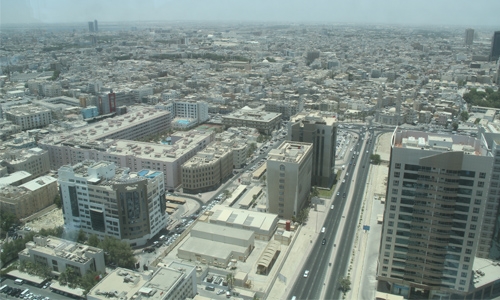Bahrain ranks second in IFDI
Manama : Bahrain was ranked second in the fifth edition of the recently released Islamic Finance Development Report and Indicator (IFDI).
Only Malaysia was ahead of Bahrain and UAE ranked just below Bahrain at the third spot. Bahrain ranked first at the governance indicator of the report and second in the awareness indicator of the report.
The findings were released by jointly by Thomson Reuters and the Islamic Corporation for the Development of the Private Sector (ICD) – the private sector development arm of the Islamic Development Bank (IDB).
The report says Islamic finance assets grew 7 per cent to US$2.2 trillion in 2016 and are projected to reach US$ 3.8 trillion by 2022.
Bahrain, the report said, has made a fruitful push for Islamic finance education and literacy. The Knowledge indicator, which encompasses education and research, also edged higher in the latest report. “There were 677 Islamic finance education providers in 2016, of which 191 provided a total of 322 Islamic finance degrees. Governments in Bahrain, Malaysia and Indonesia made particular efforts to push Islamic finance education and literacy,” says the report.
“We have seen that the Islamic finance industry can serve as a strategic tool for policymakers for sustainable growth in order to cope with the aftermath of the economic slowdown that impacted markets such as the Middle East,” said Nadim Najjar, Managing Director of Thomson Reuters in the Middle East and North Africa.
He also revealed that some markets had noteworthy improvements in their IFDI values “when they have improved or introduced Islamic finance to fit their economic needs and attract investments like Morocco, Tunisia and Iraq.”
The report studied key trends across five indicators used to measure the development of the US$2.2 trillion Islamic finance industry which are: Quantitative Development, Knowledge, Governance, Corporate Social Responsibility and Awareness. It also compiled extensive statistics on the industry from 131 countries and highlighted the best-performing countries within each key area of performance.
Khaled Al Aboodi, CEO of ICD, said: “Incorporating Islamic finance in different strategies can be seen in the many steps taken by governments across different IFDI indicators. This was noticed when some authorities intervened in Islamic social funds management, raised literacy in the industry among potential market players through formal education systems, organized roadshows targeting potential market players, or built a roadmap to plot development of the overall industry.”
The IFDI global average value, which acts as a barometer of the overall industry’s development, recovered to 9.9 in 2017 from 8.8 in 2016. This reflected improved performances in each of the five indicators. Malaysia, Bahrain and the UAE lead the IFDI country rankings for the fifth consecutive year, while the GCC remains the leading regional hub for the industry.
“Countries in the Commonwealth of Independent States (CIS), Europe, East and West Africa saw notable improvements in their IFDI values, demonstrating the continued growth of Islamic finance in non-core markets,” the report stated.
Related Posts

